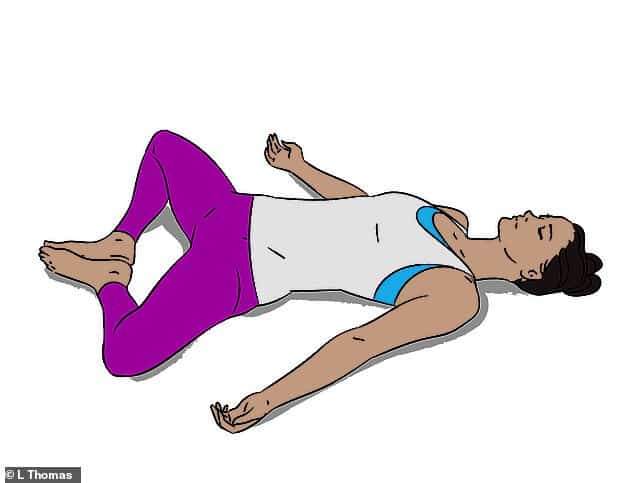Great article here on TRE® by Ashley Miller in the azcentral
Everyone experiences periods of extreme stress and tension. Too much stress can increase your risk of developing minor symptoms such as sleep disturbances or irritability, or serious health problems such as heart disease and depression. Performing deep tension release exercises can help you relax, release stress and tension, and promote feelings of well-being.
Benefits of Tension Relief
Relieving tension through exercise provides a number of benefits to your physical and mental well-being. During times of stress, your body reacts with the instinctive “fight-or-flight” response, which helps you take action or flee the situation. Your body produces stress hormones such as cortisol and adrenaline to enable you to act. Sometimes, too much exposure to stress and tension can cause your stress response to misfire, resulting in high levels of stress hormones in your system and feelings of constant tension — even when there’s no easily identifiable stressor. Stress management helps activate your body’s relaxation response, which counteracts the “fight-or-flight” mechanism. The relaxation response is a state of deep physical and mental relaxation that slows down your heart rate, decreases your breath rate, lowers your blood pressure and decreases your metabolism.
Types
There are a number of deep tension releasing exercises that you can use to release excessive stress. Deep, abdominal breathing is a simple technique that involves taking deep, slow breaths that stem from your belly to promote stress relief. Progressive muscle relaxation is another beneficial method for releasing muscle tension and stress. In this technique, you consciously focus on contracting and relaxing your major muscle groups to facilitate tension release. Other techniques that can release tension include meditation, yoga, yogic breathing exercises and a specific method known as tension and trauma releasing exercises, or TRE.
Tension and Trauma Releasing Technique
The TRE technique was developed by David Berceli, a licensed clinical social worker and traumatologist, to help victims of trauma in the Third World. The technique was subsequently refined to help the average person recover from chronic stress, tension and anxiety. The belief behind this technique is that stress and tension affect your core, causing neurogenic tremors, or physical shaking caused by involuntary muscle contractions. During times of stress, your body instinctively reacts by avoiding these tremors, instead of allowing them to be processed and released. The technique involves performing specific self-controlled muscular shaking exercises and stretches to release these tremors, thereby resulting in reduced levels of tension. However, there are no clinical studies to confirm the benefits of this technique.
Clinical Research
Many clinical studies have demonstrated the benefits of deep relaxation exercises for a number of health conditions. One study, published in the December 2009 issue of the “Journal of Hypertension,” found that participants who actively engaged in relaxation techniques such as deep breathing, experienced a more profound reduction in stress levels and improved autonomic cardiovascular regulation than participants who received a massage or sham intervention. Another study, published in the June 2009 issue of the journal, “Health Education & Behavior,” examined the effects of a mindfulness-based stress reduction technique consisting of breathing, relaxation, body scans and gentle yoga movement in healthy study participants. The results found that participants experienced a significant reduction in perceived stress and increased mindfulness when compared with a control group.
References
- Help Guide: Understanding Stress
- Massachusetts General Hospital: The Relaxation Response
- University of Arizona: Life & Work Connections: Self-Care: Take a Breath to Relax
- TraumaPrevention.com: What is TRE?
- Journal of Hypertension: Complementary Medicine for the Management of Chronic Stress: Superiority of Active versus Passive Techniques
- Health Education & Behavior: Effects of Low-Dose Mindfulness-Based Stress Reduction (MBSR-ld) on Working Adults
About the Author
Ashley Miller is a licensed social worker, psychotherapist, certified Reiki practitioner, yoga enthusiast and aromatherapist. She has also worked as an employee assistance program counselor and a substance-abuse professional. Miller holds a Master of Social Work and has extensive training in mental health diagnosis, as well as child and adolescent psychotherapy. She also has a bachelor’s degree in music.

